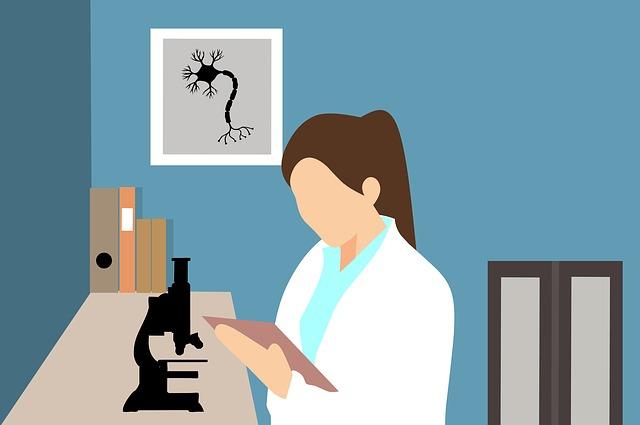If you are considering medicine as a career option and wondering why you should study medicine in Ireland?
As a GP locum, you can earn more than €100,000 a year working full time
Suppose you want to pursue an academic opportunity that will provide you with a world-class medical education while also allowing you to immerse yourself in diverse cultures. In that case, Ireland is the right choice for you. Ireland is known across the world for the high quality of its medical training and education where, at the end of the programme, graduates can advance to top positions in the Irish healthcare system and worldwide.
"I am a doctor - it's a profession that may be considered a special mission, a devotion. It calls for involvement, respect and willingness to help all other people."
- Ewa Kopacz
It also helps that because of this world-class training, Irish Medicinal Professionals are among some of the highest-paid on the planet.


The Average Range of Irish Doctor's Income Based on Speciality
To become a doctor applicants to Irish Medical Schools must receive a minimum of 480 points in the same sitting of the Irish Leaving Certificate examination and sit the HPAT.
The rate of income as a doctor in Ireland greatly depends on your speciality. For example, there is a huge difference in what you learn as a GP versus a neurosurgeon or even a dentist versus a cardiologist.
The following data has been collected by several different surveys from other domains including Glass Door, LinkedIn and Indeed, through their surveys and collected data they've come up with the most recent version of salaries for Irish doctors in their respective specialities.
They are as follows:
| Specialities | Salary Range Per Anum |
| Neurosurgeon (specialises in the diagnosis and surgical treatment of disorders of the central and peripheral nervous system) | €200,000-€400,000 |
| Cardiologist (heart care specialist) | €140,000-€350,000 |
| General Practitioner (GP) | €80,000-€150,000 |
| Paediatric Doctor (children's specialist) | €80,000-€150,000 |
| Ophthalmologist (eye care specialist) | €80,000-€150,000 |
| Dentist (oral care specialist) | €120,000-€180,000 |
| Dermatologist (skin, hair and nails specialist) | €120,000-€180,000 |
Now after seeing the above everybody will want to be a neurosurgeon, but that's not going to be an option for everyone. Becoming a neurosurgeon is incredibly difficult it takes so much more time than all of the other courses and also takes a lot more training and a lot more skills that not everybody has. In fact, the same can be said for each of these careers.
There are six Irish Medical Schools altogether – three in the capital city of Dublin, as well as in the cities of Cork, Galway and Limerick.
How to Choose Your Doctoral Speciality
"Stay true to yourself, yet always be open to learn. Work hard, and never give up on your dreams, even when nobody else believes they can come true but you. These are not cliches but real tools you need no matter what you do in life to stay focused on your path."
- Philip Sweet
It's important to remember that each of the aforementioned career paths is like a separate calling. Not everybody is called out to work with patients on a daily basis like a GP or a Paediatric Doctor who has been around children constantly. Then again not everybody has cut out to look at eyes day after day like an Ophthalmologist.
Whichever doctoral speciality you choose you have to want to make it a better field of medicine, to feel like you can improve on it, not just work at it every day, but want to go every day and make it better for other people. It has to be a passion, something in your blood, in your DNA, that drives you to get up in the morning and make the world a better place.
That's how you choose your speciality as a doctor, what drives you, what you're best at – not money!
Ireland is noted for its world-class medical training. Graduates from Irish Medical Schools consistently secure residencies in top-tier residency programs
Because after all, when you were a kid and dreamed of being a doctor, it was to help people, make them better, and send them home to their families. Yeah, ok, maybe you wanted the nice big house and a fast car, but you also wanted to help people, remember the basics and you'll never go wrong.


What Is The Average Salary For Irish Nurses?
According to industry statistics, the average salary for an Irish Nurse is somewhere between €37,000 and €45,000... However, this can and will vary depending on whether you work for the state or private agency and if you have a speciality or are a general nurse.
As of April 2023, The average salary for a registered nurse is €33.79 per hour in Ireland.
The HSE Pay Rates | General Nursing:
- Newly qualified and Registered Staff Nurses are currently paid €32,542 a year, which rises incrementally each year.
- Senior Staff Nurses start at €52,235, and various other specialists and senior Nurses start at rates anywhere between €39,000 and €60,000.
- The most senior positions, like Directors of Nursing, start at around €80,000 a year.
The Average Range of Irish Nurse's Income Based on Speciality
Just like being a Doctor, the rate of income as a Nurse in Ireland greatly depends on your speciality.
For example, there is a huge difference in what you learn as a Midwife versus a Veterinary Nurseon or even a Dental Nurse.
The following data has been collected through different surveys on other domains including Glass Door, LinkedIn and jobted.ie, through their surveys and collected data they've come up with the most recent version of salaries for Irish doctors in their respective specialities.
The average salary for a registered surgical nurse - in an operating room is €47,441 per year in Ireland.
| Specialities | Salary Range Per Anum |
| Public Health Nurse | €37,189-€64,952 |
| Psychiatric Nurse | €31,295-€50,000 |
| Dental Nurse | €22,370-€54,691 |
| Veterinary Nurse | €20,315-€48,400 |
| Midwife | €30,000-€64,863 |

How do I Know if Nursing is Right for me?
You can study to be a nurse or midwife at one of the 13 Irish Education Bodies (EBs) which offer Nursing and Midwifery Degree Programmes.
The EBs provide programmes in:
- General Nursing
- Children’s and General Nursing (Integrated)
- Intellectual Disability Nursing
- Midwifery
- Psychiatric Nursing
All of the programmes are at Level 8 Honours Bachelor Degree. On successful completion, you will receive the academic award Bachelor of Science (BSc) and will be eligible to apply to register with the Nursing and Midwifery Board of Ireland (NMBI).
Nurses are able to connect to their patients on an intimate level because they often enter their lives during vulnerable and challenging moments like injuries, illnesses, and even the birth of a child. They provide kind words and empathy when their patients and their patient's families need them most.
If this sounds like you, someone who loves to care for people to help them when they need it most why not even try and nursing studies course a QQI level 5 before you're fully commit?
Summarise with AI:















